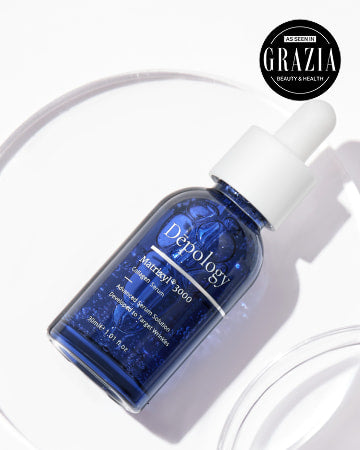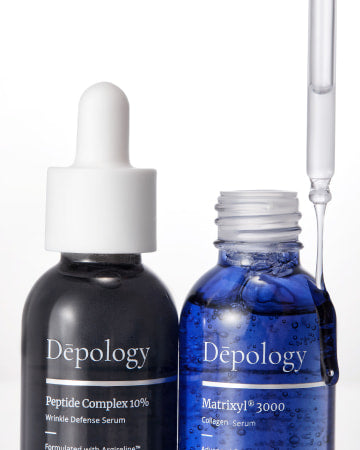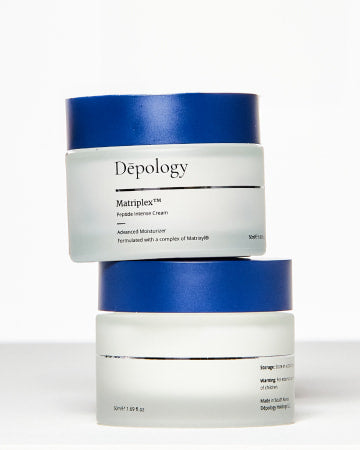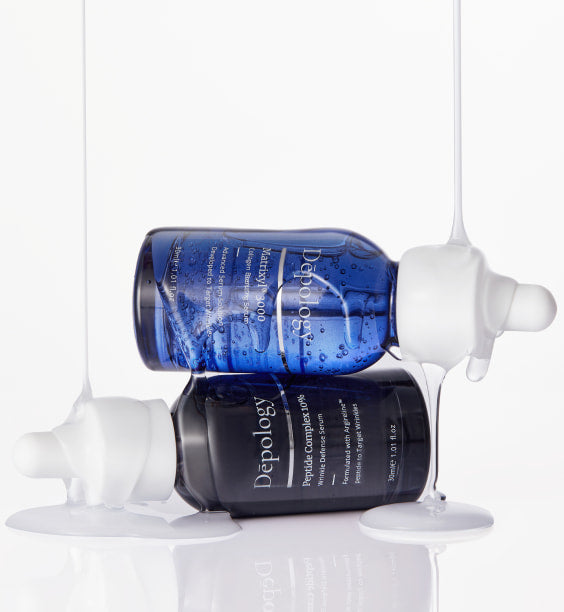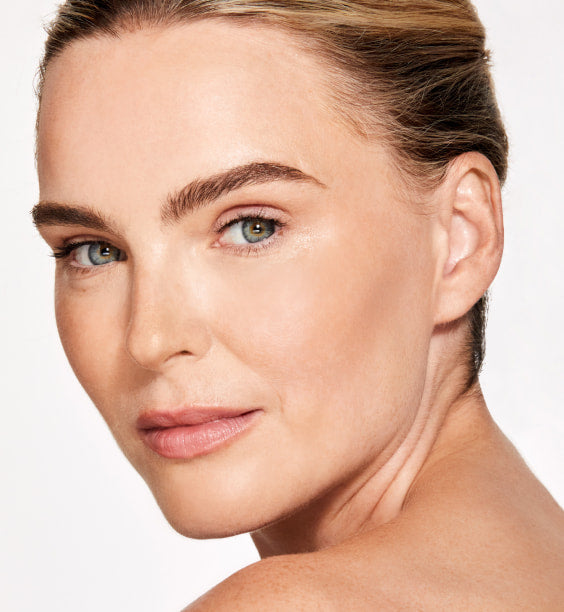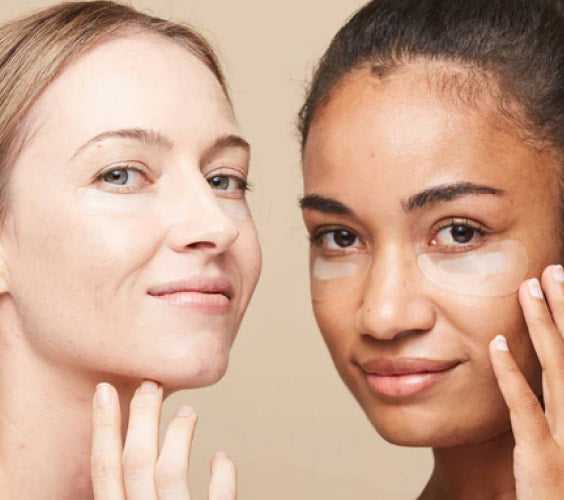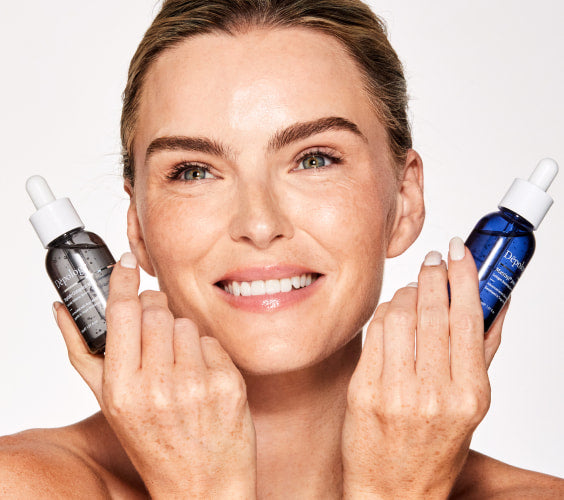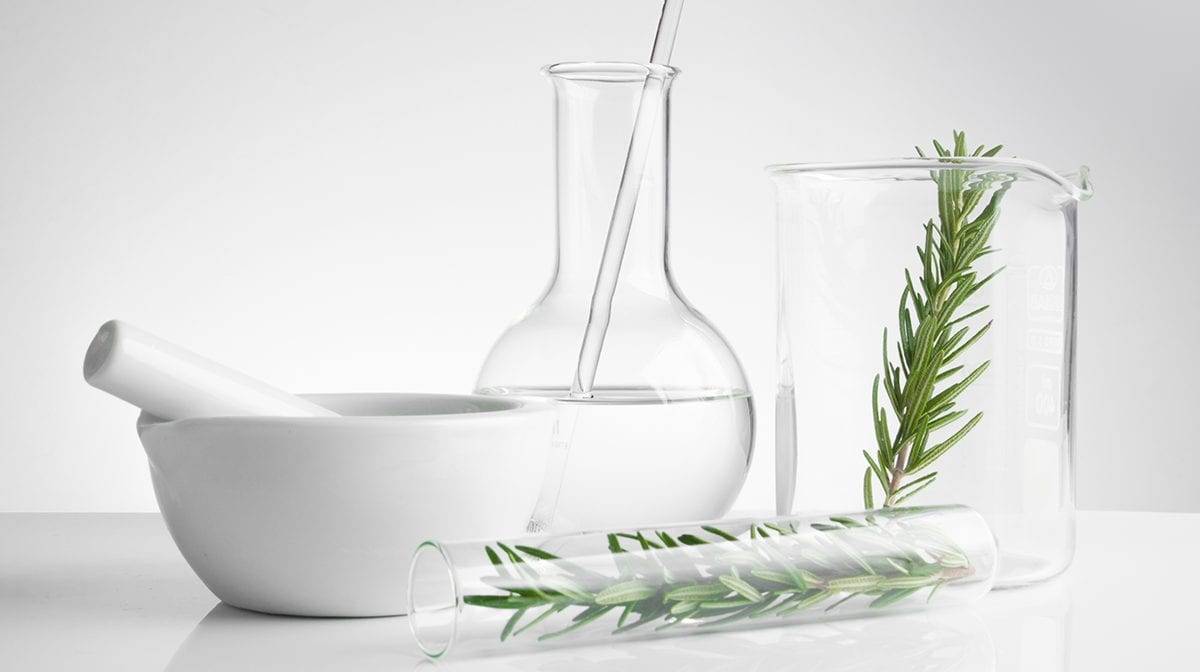The skincare game is constantly changing and evolving. Over the past few years, we've seen countless products containing hyaluronic acid to provide intense hydration. However, another ultra-hydrating ingredient called **polyglutamic acid** is on the rise. This blog post gives an overview of the science behind polyglutamic acid and its potential to moisturize and rejuvenate the skin. Keep reading to learn more about what this powerful ingredient can do for you.

What Is Polyglutamic Acid For Your Skin?
What Is Polyglutamic Acid?
Polyglutamic acid is a natural, plant-based skincare ingredient produced when bacteria are fermented and is made up of glutamic acid. Glutamic acid is a type of amino acid, which make up proteins. Polyglutamic acid today is often derived from fermented soybeans.
Polyglutamic acid is a **humectant** with the unique ability to deliver moisture and nutrients. When applied to the skin, its molecules form a thin layer that binds to it and acts like a shield, trapping moisture within and keeping the skin hydrated for longer. It draws water in from the deeper layers of the skin to keep the outer layers moisturized.
What Are The Benefits of Polyglutamic Acid?
There are many benefits of polyglutamic acid besides being an exceptional moisturizer.
-
Enhanced Hydration
As mentioned above, polyglutamic acid is particularly beneficial for those looking to improve their skin's moisture retention. Not only is it a humectant, but it also increases the production of lactic acid and other natural moisturizers in the skin. With regular use, polyglutamic acid can help make skin **supple, soft, and smooth** and can help achieve a more youthful complexion.
-
Improved Complexion
The use of polyglutamic acid can also help improve the texture and tone of the skin, reducing the appearance of **wrinkles, fine lines, and scars**. Its powerful plumping and firming abilities help to make these skin concerns less visible, leaving skin with a brighter, more even complexion.
-
Gentle On The Skin
Polyglutamic acid is an incredibly **gentle** skincare ingredient with minimal side effects. It is suitable for all skin types and won't cause irritation (unless you have an allergy), making it an excellent choice for those with **sensitive skin**. Plus, its vegan and cruelty-free formulation makes it perfect for those looking for a natural, responsible skincare solution. Its lightweight texture makes it easy to apply and spreads evenly on the skin, leaving a soft, non-greasy finish. As with any new ingredient that you introduce into your skincare routine, patch test it on your arm first to make sure that you won't have any adverse reactions if you aren't sure.
How To Use Polyglutamic Acid :
When Should I Use Polyglutamic Acid?
Polyglutamic acid can be used in both a daily skin care regimen or as part of a targeted treatment to address specific skin concerns. For optimal results, it can be incorporated into the skincare routine as a **serum** after cleansing the skin and patting it dry. Serums are more potent and contain higher concentrations of ingredients, so they can help make results appear faster.
Our Picks:
Which Products Contain Polyglutamic Acid?
For those looking to add polyglutamic acid to their skincare routine, there are a variety of products available. From creams to serums to masks, you'll find something to suit your needs. Look for products specially formulated with polyglutamic acid for a concentrated dose of the ingredient. Additionally, it's important to read the ingredients list of any product containing polyglutamic acid to ensure it is free from any irritants or harsh chemicals that can damage the skin. With the right product, you can start to reap the benefits of polyglutamic acid in no time.
Our Pick:
Can I Use Polyglutamic Acid With Other Ingredients?
Polyglutamic acid is gentle, so it can be used either alone or in combination with other skincare products, depending on individual needs. You can combine it with more intense ingredients that target specific concerns like **retinol**, which reduces the appearance of fine lines and wrinkles, or **niacinamide**, which reduces hyperpigmentation and age spots.
Polyglutamic Acid vs. Hyaluronic Acid
Both polyglutamic acid and hyaluronic acid are **humectants**, making them powerful moisturizers. However, each functions in a different way. For starters, hyaluronic acid is naturally found within the body, while polyglutamic acid is not. Polyglutamic acid and hyaluronic acid both are amazing at retaining water, but polyglutamic acid actually retains moisture up to **5,000 times its own weight**, while hyaluronic acid retains moisture up to just **1,000 times its own weight** in water.
Hyaluronic acid and polyglutamic acid can actually work together to provide even more moisture. Hyaluronic acid works within the deeper skin levels, while polyglutamic acid forms a "**shield**" on the skin to reduce water evaporation and improves moisture on the skin's surface. Additionally, polyglutamic acid inhibits the enzyme hyaluronidase, which breaks down hyaluronic acid.
summary : is polyglutamic acid good for your skin?
When it comes to finding the perfect hydrating skincare ingredient, **polyglutamic acid is a great option**. This natural, plant-based ingredient offers a multitude of benefits, from increased hydration and nourishment to improved skin texture. Furthermore, it is gentle on the skin, gentle on the environment, and able to retain water extremely well for maximum effectiveness. For those looking for an effective way to achieve glowing, supple skin, polyglutamic acid is a great choice.


